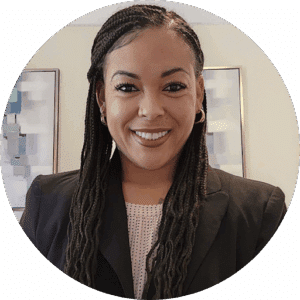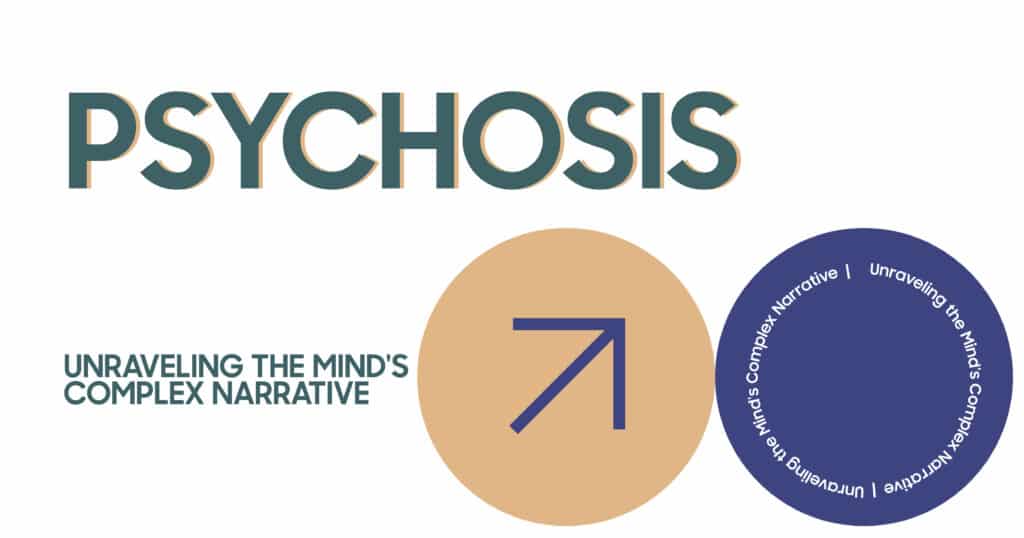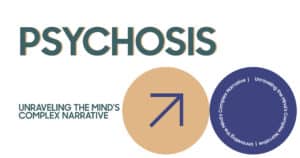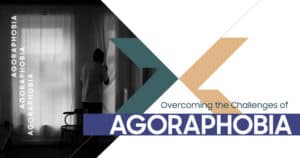One of the most misconceived things about mental illness is psychosis. Popular media often presents it in extreme terms, but in reality, it is a clinical condition that awkwardly affects factors of reality in a person, his or her way of thinking, feeling, and acting. The day-to-day experience of psychotic patients may be disjointed and overwhelming, and unpredictability may be just as difficult for families.
Knowledge of psychosis is key to effective treatment and the provision of hope. In this article, we will discuss its symptoms, cause, diagnosis, and treatment.
Introduction to Psychosis
Psychosis is not a disease but an assembly of symptoms, which may be manifested in such states as schizophrenia, bipolar disorders, severe depression, or even medical and drug-related conditions.
Fundamentally, psychosis alters the capacity of an individual to differentiate what things are real and what is imaginary. Depending on the stress, medical conditions, psychosis may be both acute and temporary, or chronic, so it can be maintained. In any case, the prompt prevention and intervention methods are the right way to improve outcomes.
Treat Mental Health Tennessee
Symptoms of Psychosis
The symptoms of psychosis may differ significantly from one individual to another, although clinicians usually distinguish the symptoms into three major sets. These consist of positive symptoms (anything that adds to what the person perceives in reality, such as hallucinations), negative symptoms (the abuse of the normal emotional or social functions), and cognitive symptoms (impairments in thinking and recalling information). These categories are summarized and presented by way of an example in the table below:
| Symptom Type | Description | Examples |
| Positive Symptoms | Additions to normal experience | Hallucinations and paranoia. |
| Negative Symptoms | Loss of normal functions | Poor interpersonal communication, Withdrawal, and impaired speech. |
| Cognitive Symptoms | Impaired thought processes | Uncontrollable thinking, lack of concentration, and memory loss. |
Psychosis Causes and Risk Factors
Psychosis no longer has a common etiology – it normally occurs due to biological, psychological, and environmental interactions.
- Genetics – Genetic history of schizophrenia or other serious mental disorders raises the risk.
- Brain Chemistry – hallucinations and delusions can be caused by an imbalance in dopamine and glutamate.
- Substance Use – Cannabis, LSD, or methamphetamines are some drugs that can cause or deteriorate psychosis.
- Medical Conditions – neurological problems, head or brain infections.
Diagnosis and Medical Evaluation
A psychosis diagnosis is a complex task that involves the services of a mental health practitioner. Due to its symptoms, which include hallucinations, delusions, and disorganized thoughts, a thorough, wise evaluation is essential. Clinicians normally use a combination of clinical interviews, symptom checklists, psychological tests, and medical examinations to eliminate other causes.
Clinical Interviews and Symptom Assessment
An interview with the interviewer starts with an account of the symptoms, medical history, family history, and lifestyle. They seek characteristic qualities, including hallucinations, delusions, or disorganized thought, along with determining emotional and cognitive functioning.
Diagnostic Criteria and Psychological Testing
- DSM-5 Criteria – psychosis Those with persistent delusions, hallucinations, or disorganized speech symptoms of at least one month duration with functional impairment are classified as having psychosis.
- Psychological Tests – Standardized tests are used to gauge cognitive dysfunction, paranoia level, and thought patterns.
- Medical Workup – Blood tests, imaging (MRI/CT), and toxicology screenings eliminate medical or substance-induced causes.

Treat Mental Health Tennessee
Treatment Options and Management Strategies for Psychosis
Psychosis treatment is of a multi-dimensional nature, which is an integration of therapy, medication, and supportive interventions.
- Cognitive Behavioral Therapy (CBT) – Assists the patients in disputing delusions and alleviating distress brought out by hallucinations.
- Family Therapy –Trains and includes family, and boosts the helping net.
- Social Skills Training – Develops communication and coping skills on how to conduct oneself in everyday life.
- Psychoeducation – Helps patients and their families in learning to learn about psychosis and how to manage it.
Medication and Long-Term Management Plans
Medication is one of the key factors in the management of psychosis related disorders, especially in schizophrenia disorder, in which hallucinations, delusions, paranoia, among others, are persistent. Antipsychotic drugs can be used to stabilize the chemical concentrations in the brain, minimize the irritating symptoms, and make living conditions more acceptable.
Monitoring and readjusting or supplementing treatment are also included in the long-term management, where it is vital to keep track of the health situation and use medication with treatment and supportive daily care to achieve stability and avoid relapse. Prominent examples of options include medications that have their purpose in treatment, and they are stated in the table below:
| Medication Type | Purpose | Examples |
| First-Generation Antipsychotics | Reduce hallucinations and delusions by targeting dopamine receptors | Haloperidol, Chlorpromazine |
| Second-Generation Antipsychotics | Control positive symptoms with fewer side effects; may improve mood and cognition | Risperidone, Olanzapine, Clozapine |
| Adjunct Medications | Address co-occurring issues such as depression, anxiety, or sleep disturbances | SSRIs (e.g., Sertraline), Mood Stabilizers (e.g., Lithium), Sleep aids |
Psychosis Impact on Daily Life and Coping Mechanisms
The psychosis can interfere with just about all aspects of day-to-day living, such as relationships and work. Common challenges include:
- Impairment of attention at the workplace or in school.
- Poor relationship, either because of paranoia or withdrawal.
- Both hallucinations and delusions cause emotional distress.
- Dependent condition caused by dependency on caregivers.
Coping mechanisms include:
- Routine building – Being in form decreases stress.
- Mindfulness and grounding – Assists patients in distinguishing between reality and hallucinations.
- Others – healthy eating, exercise, and sleep enhance mental wellness.
Support Systems and Resources for Patients and Families at Treat Mental Health Tennessee
At Treat Mental Health Tennessee, we trust that psychosis includes recovering through mutual and humane behavior. Our staff relies on evidence-based practices and patient-centric care to assist people in coping with the symptoms, restore normal functionality, and assist the families through difficult periods as a unit.
When you or someone you love starts showing signs of psychosis, do not wait. Check out Visit Treat Mental Health Tennessee to see how we can assist.

Treat Mental Health Tennessee
FAQs
What are the key differences between hallucinations and delusions in schizophrenia?
Hallucinations can refer to a perception that is not real like the voices, or pictures. Delusions are misinformed, uncompromising assumptions like the belief that people are planning to harm you even when they do not.
How do antipsychotic medications help manage symptoms of paranoia and cognitive dysfunction in mental illness?
The use of antipsychotics alters neurotransmitters such as dopamine and lowers paranoia, and enhances clarity of thought. This aids patients in coping with hallucinations, delusions, and cognitive difficulties better.
What role does early diagnosis play in addressing disorganized thinking in psychosis?
Prompt identification will enable quicker treatment, reducing the extent of incongruent thinking and avoiding functional deterioration in the long run. It also increases recovery probabilities and general quality of life.
How can family support systems aid in coping with the daily life challenges posed by schizophrenia?
Families also take care of farming spirits, promote compliance of treatment, and support in eliminating prejudice. Involved families will help to achieve better recovery and less risk of relapse.
What strategies are effective in managing the impact of hallucinations and delusions on personal and professional life?
Instructional methods such as CBT, meditation, exercise regimen and support systems are useful interventions. Such devices can assist patients in being stable and achieving both personal and career aspirations.









